 Thanks to my Amazon Kindle app on my iPad, I get to carry much of my book collection with me.
Thanks to my Amazon Kindle app on my iPad, I get to carry much of my book collection with me.
Sometimes, while on the road, I end up eating dinner alone with my iPad. Recently, I was in a Japanese restaurant and decided to revisit parts of Taiichi Ohno's classic book Toyota Production System: Beyond Large-Scale Production from 1988.
There's always something interesting and some new tidbit that jumps out at me.
One interesting section was Ohno talking about criticisms of TPS (which could also apply to our world today, with Lean). Often times, resistance to new ideas is born from a lack of understanding. This might have been the case with the recent criticisms of Lean in the New England Journal of Medicine.
Ohno wrote:
Ohno doesn't necessarily blame people for not understanding… he reflected that he and Toyota hadn't done enough to teach about TPS at that point. It reminds me of the old Training Within Industry expression of “When the worker hasn't learned, the teacher hasn't taught.” Of course, the TWI method had a big impact on Toyota and, I'd assume, on Ohno.
Ohno also said that top leaders and executives need more than a superficial understanding of TPS. It's tempting to hear a little bit about Lean and then declare “Oh that's simple, we already do that.” Um, probably not.
Ohno also shared his view on why layoffs are a bad practice… something that's extended today where organizations have a “no layoffs due to Lean” policy.
As I've written about, Lean isn't primarily a cost-cutting strategy.
Elsewhere, Ohno shared some reflections on learning from Henry Ford's work and writing.
Ohno had said (and I've cited him as saying) that standardized work should be developed by those who do the work.
When people understand WHY work should be done a certain way, they're more likely to follow the standardized work. The Lean approach is driven by understanding, not forced compliance.
The approach of top-down job instructions that are dictated by engineers or managers is often described, rightly or wrongly, as “Taylorism.” The NEJM authors were complaining about Taylorism and Lean is not Taylorism.
A Lean approach, or if Toyota ran a hospital, would be to engage physicians in developing their own standards and approaches, using evidence, data, and the scientific method.
Henry Ford often gets pummeled these days (and I've pummeled him) for once asking, “Why is it that every time I ask for a pair of hands, they come with a brain attached
But, Ohno points out that Ford said standards should not be “directed from above.” Maybe Ford wasn't saying the workers should develop the standards, but somebody at the shopfloor or “gemba” should. Standardized work can't be static… we need progress, or “Kaizen” as Ohno and Ford seemed to agree.
Ohno also said that the Ford approach may have been co-opted… some, like Bob Emiliani, say the same thing about Frederick Taylor, that his ideas were bastardized over time.
Likewise, Lean isn't about making people work harder to be alienated from the purpose of their work. When that does happen, it's not really Lean, it's L.A.M.E.
If you've never read Ohno's work, check it out.
Please scroll down (or click) to post a comment. Connect with me on LinkedIn.
Let’s work together to build a culture of continuous improvement and psychological safety. If you're a leader looking to create lasting change—not just projects—I help organizations:
- Engage people at all levels in sustainable improvement
- Shift from fear of mistakes to learning from them
- Apply Lean thinking in practical, people-centered ways
Interested in coaching or a keynote talk? Let’s start a conversation.



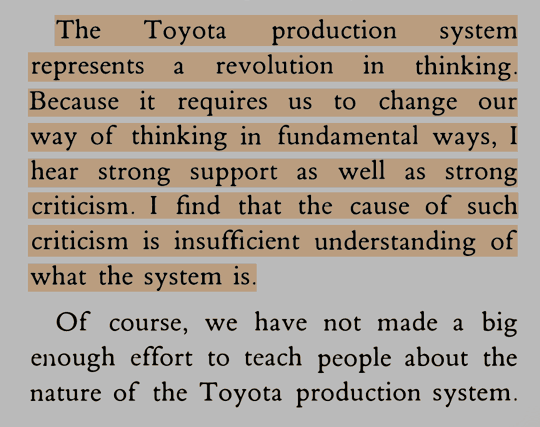
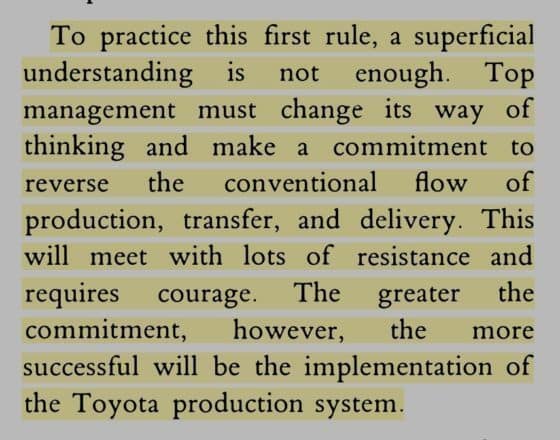
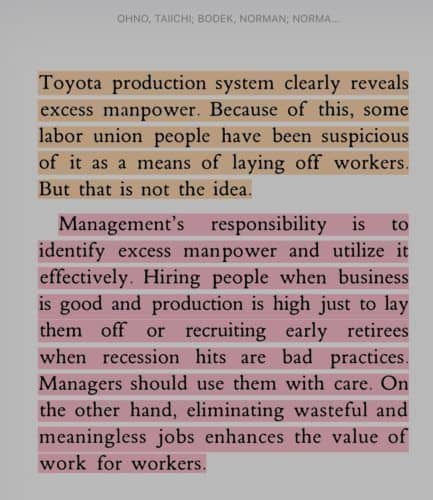
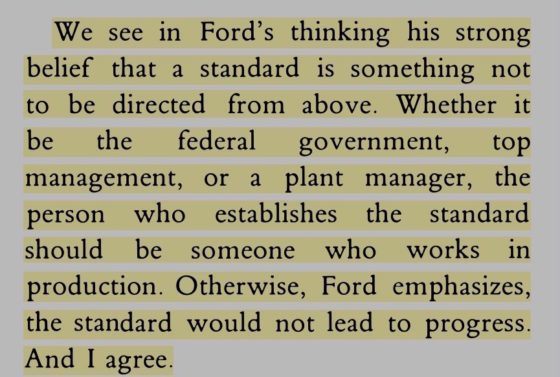
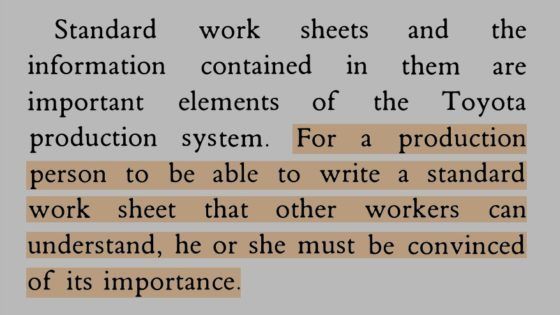
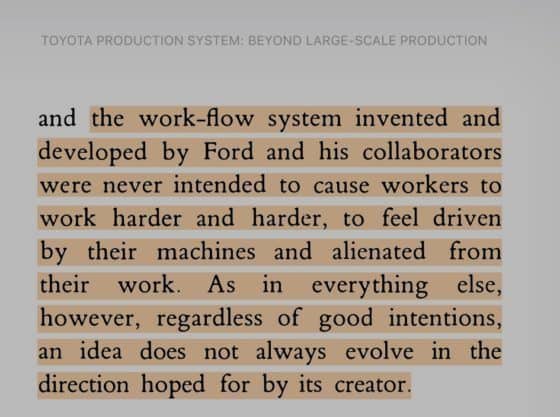





![When Was the Last Time a Leader Around You Admitted They Were Wrong? [Poll]](https://www.leanblog.org/wp-content/uploads/2025/07/Lean-Blog-Post-Cover-Image-2025-07-01T212509.843-100x75.jpg)

Nice job. It’s good to remind people to go back to the source. I’ve read Ohno’s book dozens of times and find many new and important things in it each time I read it. I hope others do as well.
[…] sense. As Mark Graban writes in his Lean Blog, “The Lean approach is driven by understanding, not forced compliance.” TPS is also driven by […]
Well done Mark. As Bob already mentioned it is always wise to go back to the original. Just reread it myself a couple of days ago. Always new things to learn from Ohno’s work.
Lean is definitely about the shift in mindset that only then allows the proper use of the tools.